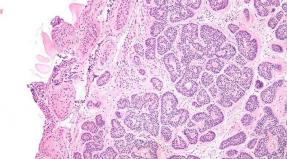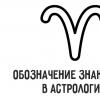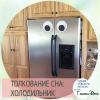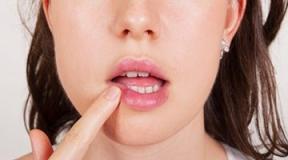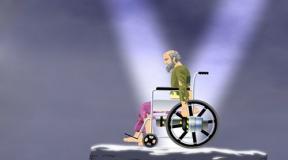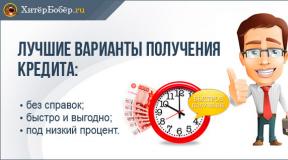Rules for receiving medicines. Incompatible drugs
Have you been from a doctor and in your hands turned out to be a few recipes? Do not start taking all drugs immediately. It turns out that complex relationships are not only here - people, but also in drugs ...
Joint reception of various drugs can cause extremely unwanted reactions from the body. According to statistics, approximately 7% of the side effects of drugs occurs due to their interaction between themselves or with food. The simultaneous reception of two means without taking into account their relationship in 2-3% of cases contributes to an undesirable result. If you are prescribed five drugs, the risk of side effects reaches 50%.
2. You must know ...
What a variety does not always have a positive effect on treatment. But it is possible to avoid harmful consequences.
Never assign yourself medicines yourself. Consult with a wide profile specialist, which in the forces clearly explain what can be taken with what is it is categorically prohibited.
Second taboo - any alcoholic beverages In parallel with medicines. Even a completely small dose of alcohol can negatively affect your well-being.
Many drugs "do not suffer" milk, equal milk products, fresh juices, coffee ... There are a lot of prohibitions. Of particular alertness regarding the reception of several drugs should be people with chronic diseases.
The strictest rules are installed for receiving antibiotics. This is the most dangerous group of drugs with serious side effects. They cannot be combined with the same strong and fast-acting means - for example, spyphine from allergies or powerful soothing - with a phenzepam.
Carefully approach the reception of cardiovascular drugs. Their interaction with diuretic can fail the kidney.
3. Pharmarmetrics.
It is not necessary to know all the features of the combination of drugs. Disposable whether medicines familiar to us are combined from a home aid kit, will never be superfluous.
To begin with, imagine the path of medicine in our body. At what stages of movement, it suddenly can turn into poison?
Or why we do not feel better at all, although they accepted both the other and third ...
4. At a special position.
Grapefruit juice is 100% prohibited in hormone therapy, reception of drugs for the treatment of cardiovascular, oncological diseases, antibiotics, analgesics, antiviral, antifungal agents, as it can excessively strengthen their action. Fruit juices, soda, tea leads to the dilution of the gastric juice and weaken the effect of drugs.
Caffeine itself is distinguished by an exciting action, and together with such medicines, it is capable of bringing to insomnia and nervous overstrain.
Nicotine reduces the effectiveness of analgesics.
5. At the suction phase.
Antacids, activated carbon or other adsorbents reduce the absorption and effectiveness of drugs at the same time.
They should be prescribed in the interval plus-minus 1-2 hours to the reception of the main drug. An antagonism may occur between chemicals and an inactive complex is formed, for example, between tetracycline and iron, calcium or magnesium preparations. Laxative means enhance the peristaltics, but worsen the suction of other drugs. On the contrary, the M-cholinoblocators cause a decrease in the peristaltics than they contribute to the assimilation of the preparations prescribed in parallel with them.
6. At the distribution phase.
(Penetration from blood to organs and tissues). Anesthetics and antipyretic - aspirin, ibuprofen - compete with antidiabetic means. This can lead to a sharp drop in blood glucose levels and cause loss of consciousness. Or, for example, if there will be no levodopes in the stomach, Parkinsonism, the lion's share of the drug adopted by you will be metabolized, as a result, a smaller portion of the drug falls into the intestine, it will immediately lead to a decrease in the pharmacological effect.
7. At the metabolism stage.
Or biotransformation (transformation medicinal substance In a non-toxic connection, as a rule, in the liver). Phenobarbital activates the liver enzymes, leads to accelerating the action of some drugs and reduces the effect of others.
8. At the stage of removal.
(Through the kidneys and with bile). Possessing the ability to change the acidity of urine, many drugs violate the rate of dedication of medicines. Ascorbic acid climbs the urine, and the simultaneous reception of weakly alkaline drugs accelerates their excretion, weakening the action.
9. Medicines-enemies.
Snowframes enhance the effect of antiallergic, neuroleptic preparations, analgesics, most anti-inflammatory.
Also, they can not be combined with CNS stimulants.
The simultaneous reception of antidepressants and anti-infinite funds (Koldrex, theraflu, rhines) can lead to increased validity of the first, significant increase arterial pressure, Temperatures and, the most dangerous, coma development.
Negatively affects the work of the kidneys, the reception of paracetamol together with aspirin, anti-epileptic drugs, barbiturates, stomach drugs. In case of diseases of the stomach, it is recommended to exclude paracetamol and aspirin from a first-aid kit. These drugs and children up to 2 years old, people with bad coatability blood.
Cunning and dangerous "Neighborhood" Analgin, Indomethacin, Ibuprofen and preparations, which contain alcohol (all sorts of syrups, tinctures), - they enhance the effect of alcohol.
With antibiotics it is not recommended to take vitamins - they are neutralized. Vitamin support will be effective after the course of treatment with antibiotics.
Anticipate and know all possible interactions of drugs in their joint appointment - the doctor's task. Only he, a specialist with sufficient knowledge and indispensable experience, can protect you from the unwanted consequences of the simultaneous reception of several drugs, separating their receptions by time or in time of the optimal combinations with the minimum level of interaction.
But you must be aware: carefully read the instructions where you will find all the necessary information.
Council.
Do not independently assign an additional treatment yourself when you already accept any medicine. Be sure to consult your doctor, even if we are talking about innocent, cough or headaches.
And do not forget to tell him about all the preparations that you currently use.
In our age of a rapid pace of life and stressful situations, many people save their time at care of their health and believe that the reception of drugs is a panacea from all the troubles. For them, receptions seems to be a rapid solution of all problems with well-being, and often several drugs without medical purposes are often accepted.
Meanwhile, the danger of receiving several medicinesconcerning the fact that it is very difficult to predict how medicines will behave with a complex admission, which connections may arise, and the main thing they will have an impact on the body.
Many may argue that the danger of reception at the same time of several drugs made on a synthetic basis is quite admissible, but it does not apply to vitamins, food additives and vegetable medicines. And they will be wrong. Often, people take one medicine appointed by the doctor, in combination with drugs or food additives, which are released without a prescription, and naturally, do not think about the consequences.
Preparations presented in sufficient quantities in pharmacies are intended for the treatment of almost all ailments, but what their interaction with each other, as they affect the body, you can not always predict. Given the relevance of the issue, it is necessary to know what the risk of reception of some drugs is at the same time and to which consequences it can lead.
Preparations, mutually exclusive: aspirin and ibuprofen
The reception of several drugs is a serious danger to many patients over 50 years suffering from diseases of the cardiovascular system. Doctors such patients prescribe a daily admission of aspirin, which contributes to the discharge of blood. In such patients there is a risk of formation in the arteries of thromboms or clots, which can lead to a heart attack. Aspirin, diluted blood, gives her the opportunity to circulate freely blood system organism. However, many patients as a calming agent are also taken by Ibuprofen, and at the same time they do not think that ibuprofen if it does not completely neutralize the impact of aspirin, it significantly weakens it.
The danger of taking these two drugs can be prevented, pre-consulted with a doctor. The doctor will definitely indicate the time of reception of each of these drugs so that each of them is effective.
The consequences of simultaneous reception of non-receptible drugs
Simultaneous reception of several drugs, one of which is released without a recipe can also lead to negative consequences. As an example, we can clarify the reaction and Benadryl, which weakens the reaction and can cause a serious accident.
Interaction of natural drugs with other medicines
There is a myth about the harmlessness of the simultaneous reception of several drugs, one of which is made on a natural basis. The following examples clearly demonstrate the groundlessness of such judgment. The simultaneous reception of the antidepressant of the Hypericum neutralizes the effect of Viagra. Contraceptives are neutralized by some vegetable preparations. The vegetation preparation of Kava-Kava is contraindicated when taking sedatives and with antidepressants. There is a danger of reception of some plant preparations with medicines used for anesthesia.
Even some fruits can cause problems. Patients taking antidepressants, drugs for lowering blood cholesterol, drugs shown in heart disease, epilepsy, is not recommended to use grapefruits and grapefruit juice, since in this fruit contains substances that interact with the above drugs.
Before the admission of certain drugs, vitamins and food additives, it is necessary to draw up a list with the obligatory inclusion of vegetable-based drugs in it and consult with a specialist about the possibility of their application. Before taking a new tool, it is also better to ask the doctor following questions:
- How harmless is the drug while simultaneously receiving with other medicines?
- Do I refuse from the reception of some products or not?
- What symptoms are important?
In recent years, self-examination has become a common phenomenon in our society. We often take tablets, listening to the advice of friends and acquaintances, without thinking about possible consequences. And we have no idea how important to take medications That's right, following the instructions.
On this topic, we talk with the doctor of medical sciences, professor at the Department of Professional Diseases and clinical pharmacology Galina Grigorievna ketova.
Galina Grigorievna, in what cases when receiving medicines should be accurately followed by the instructions?
Today in the city pharmacies in large quantities, drugs are sold, which can be purchased freely, and those that can only be bought in the presence of a doctor's prescription. When buying non-prescription drugs, it is enough to take advantage of the consultation of the pharmacist or pharmacist.
With prescription drugs, everything is different. IN Federal Law The protection of public health is indicated that these drugs should be written only by doctors. They are necessarily attached to them full instructionintended for specialists whom the patient needs to follow.
- Your attitude to self-medication?
In clinical pharmacology, there is such a concept as a responsible self-treatment, according to which the consumer itself is responsible for its health. Therefore, a person who has decided to be treated independently must have a clear idea of \u200b\u200bthe possible consequences of such a step. For example, self-treatment is not contraindicated with a slight course of acute respiratory diseaseBut with a more severe manifestation of ARVI or influenza, especially during the epidemic period, only a doctor should be prescribed treatment.
- Why is it so important to take a medicine on time?
When receiving drugs, it is necessary to accurately comply with the dosage and multiplicity of reception specified in the instructions. Otherwise, the desired level of the drug concentration in the body will not be maintained, which will lead to an increase in either weakening the therapeutic effect.
- Suppose that the instructions say that the medicine is better to take in the morning, what time will be optimal?
The optimal time of taking medication in the morning hours from 6 to 9 hours, during the daytime from 12 to 13 hours, in the evening from 18 to 19 hours. At a later time of the day, the tablets are not recommended, since many drugs cause an excitation of the nervous system.
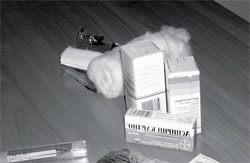 - Why is it so important to pass a full course of treatment?
- Why is it so important to pass a full course of treatment?
The course of treatment prescribed by a doctor is very important, without missing a single reception. For example, the course of treatment with antibiotics lasts from 5 to 7 days. During this time, a certain concentration of the drug in the body is formed and the causative agent is completely destroyed.
- How best to take tableted drugs?
Tableted drugs must be taken according to the instructions, or chewing, or swallowing entirely.
- The better to drink medicine?
In most cases, drugs need to drink boiled water. For this purpose, mineral water, tea or coffee is not suitable, as they, interacting with the medicine, reduce its effectiveness. Milk medication should be done only if it is spelled out in the instructions.
- If the doctor prescribes several drugs at the same time, how best to take them?
To date, simultaneous reception of up to five drugs is considered permissible. When prescribing several drugs, it is not recommended to take them at the same time. The gap between the receptions should be from 10 to 20 minutes.
- What is dangerous to use medicines with an expired expiration date?
Medicinal preparations with expired shelf life can cause adverse side effects or create low concentration active substance In the body, thereby reducing the effectiveness of treatment.
- Why during treatment the reception of any alcoholic beverages is contraindicated?
Many drugs when interacting with alcohol can cause undesirable side effects, so during treatment from drinking alcohol, it is necessary to refuse.
J. Kiseleva.


